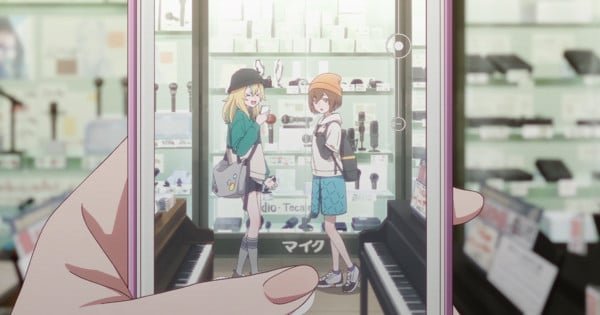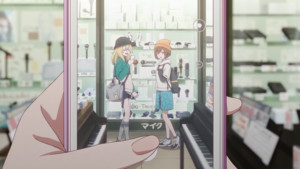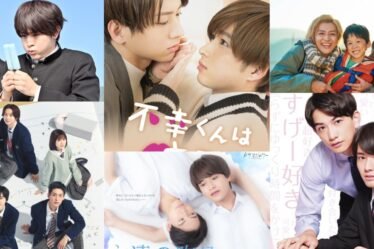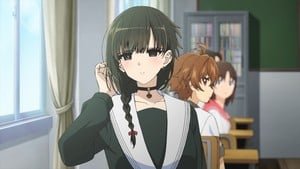

© JELEE/Manufacturing Committee “Jellyfish Cannot Swim at Night time”.
It is clear at a look Jellyfish has loads to supply. It has an all-around nice manufacturing, helmed by a proficient director and staffed with among the Doga Kobothe most effective fingers. It comprises some actually attention-grabbing concepts about identification and the way it influences inventive creation, asking questions on what it means to be your genuine self, and the way the ‘self’ is altering within the age of social media. It has a script that…properly, the purpose is…
Okay. Let me lay my playing cards on the desk. I feel the script for this present stinks a bit. It is not horrible. It’s competent in delivering a narrative. There aren’t any enormous structural points, and general TV viewing is ok. It is simply that it commits a cardinal sin that retains me from embracing the story and characters the way in which they wish to.
There’s a refined craft in screenwriting. It requires the power to give you attention-grabbing concepts and summarize them in story, character and dialogue in a approach that conveys them not solely to your viewers, however to us as properly feeling that too. You do not simply wish to talk {that a} character is gloomy, you need the viewers to really feel unhappy too. That requires a pointy steadiness in dialogue that may ship essential data whereas nonetheless feeling like one thing somebody might really say. That is a steadiness Jellyfish has but to strike, and it is potential is routinely undermined throughout these opening episodes.
Take Mei’s line in episode two, for instance. It comes in the midst of her flashback, during which we be taught in regards to the remoted and high-pressure life she led earlier than a fateful encounter with Kano saved her. Caught in her devoted admiration for Kano’s idol, she holds out a photograph of her to a hairdresser and says, “I wish to turn out to be the factor I like!”
That is a line that technically will get the purpose throughout, nevertheless it’s such an unnatural line to place in a personality’s mouth. It is not even the ‘individual’ she loves, it is the ‘factor’. It is one thing you’d write below a personality profile whereas pitching the present to somebody; or else it’s one thing like that I ought to say to summarize the subtext of Mei’s character, as a result of I am talking from the gap of a viewer who needs to summarize the concepts of the present and focus on them with you, the reader. As a screenwriter, you’d display that concept by way of her actions and dialogue all through the episode, permitting the viewers to intuitively really feel that she needs to turn out to be the factor she loves. Then individuals watching the present would determine with that feeling, and perhaps see one thing of themselves in her, and turn out to be hooked up to it. As an alternative, we see the character blatantly stating the abstract of her character profile in a approach that sounds synthetic. It messes with the magic trick of character writing and makes Mei really feel hole within the course of.
That is a recurring downside in these episodes, and it is an actual disgrace. Like I stated, there are some cool concepts at play right here, a few of which I have never seen tackled in an anime like this earlier than. Jellyfish is primarily centered on artists defining themselves, and the way the persona of efficiency could be each transformative and limiting. Kano needs to insurgent in opposition to the plastic picture she was compelled into as an idol and acquire full management over the music she makes. Yoru regains her inventive ardour solely after seeing Kano’s willpower to outline herself, pushing again in opposition to a deep-seated worry of rejection to return Kano’s help. Mei initially wilts when she sees her beloved idol throw away the statue that impressed her, however ultimately acknowledges that Kano’s character stored her going, and turns into a buddy fairly than an admirer. We have not gotten to our Vtuber heroine but, however there are lots of angles you’ll be able to tackle the subject of identification for an artist who makes up a whole persona to cover theirs.
These are highly effective, highly effective concepts that sound good once I lay them out right here and summarize them in an abbreviated abstract. In motion, there’s a seemingly unbridgeable distance between me and the characters, as a result of the dialogue by no means makes them really feel like individuals. They turn out to be vessels to convey these themes, however they do not click on properly when understood as narrative fiction. That is intensely irritating, as a result of it seems like there is a glass wall between me and a very good present. I wish to sympathize with these ladies. I wish to be concerned of their journey to inventive identification and ensure they succeed and cry ugly tears after they fail or succeed. However proper now I can solely parallel them, perceive them on a conceptual degree, however by no means on a human degree. That stinks.
To be sincere, some moments and facets do work for me. I like the way in which Mei breaks out into a very goofy smile (?) when she’s pleased, which exhibits how awkward she is in social conditions. As blunt as it’s, I really feel that every of our heroines has quite a lot of aliases, which exhibits how every of them tries to assemble their very own identification. Kano and Kim attempt to reclaim their names after being pressured to adapt, whereas Yoru and Kiwi undertake new names to raised specific their artwork. These are good touches that, whereas removed from refined, really feel rather more natural. I hope the present will lean on these approaches over time, as a result of in any other case this jellyfish is in for tough seas.
Judgement:
Jellyfish can not swim at evening at the moment streaming
HIDE.



